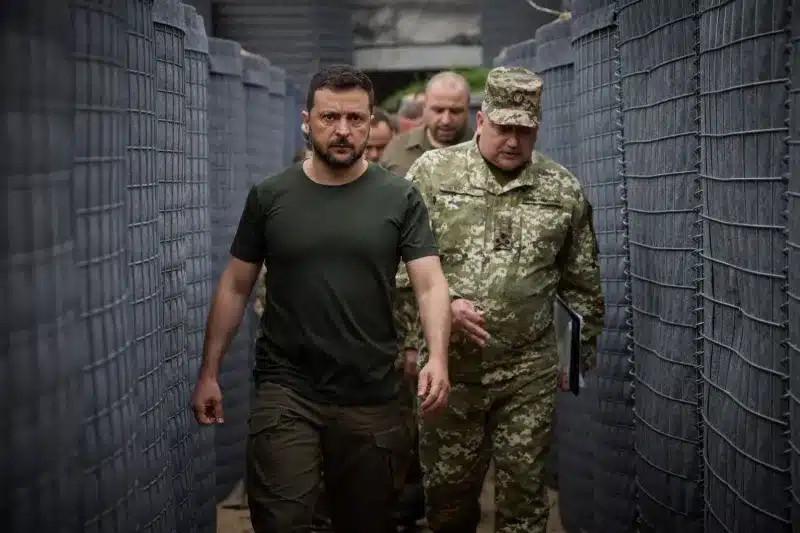
Ukrainian officials are awaiting further clarification from the Trump administration regarding the “billions of dollars” worth of military assistance pledged by the United States earlier this week. President Donald Trump stated that a substantial weapons deal had been reached, involving the delivery of advanced systems including Patriot air defense batteries and potentially long-range Tomahawk missiles.
During a meeting at the White House with NATO Secretary General Mark Rutte, Trump announced that an unnamed allied country was ready to provide 17 Patriot systems for Ukraine. However, officials in Kyiv have yet to confirm the scope of the support or what exactly the figure “17” represents.
“It’s not clear whether the number refers to entire Patriot batteries, individual launchers, or interceptor missiles,” said Major General Vadym Skibitskyi, deputy chief of Ukraine’s military intelligence agency. “Seventeen batteries would be an extraordinarily large number. If it refers to launchers, that’s more feasible.”
Currently, Ukraine is believed to possess six operational Patriot batteries, which play a vital role in intercepting Russian cruise and ballistic missile attacks. European allies such as Germany and the Netherlands have also committed additional systems, possibly aligning with Trump’s announcement.
The potential delivery of long-range Tomahawk missiles—capable of reaching targets over 1,600 kilometers away—was reportedly discussed between Trump and Ukrainian President Volodymyr Zelenskyy in a phone call earlier in July. While no agreement has been finalized, Ukrainian officials see such weapons as critical to deterring and disrupting Russian military infrastructure far behind frontlines.
“There are ongoing discussions with Washington about lifting restrictions on the use of ATACMS missiles,” Skibitskyi said, referring to the current policy which limits their deployment to Ukrainian territory occupied by Russian forces. A change would allow Kyiv to strike military assets deeper within Russia.
According to reports, the Trump administration may soon approve broader use of the ATACMS systems and is also considering additional missile shipments. However, Skibitskyi cautioned that deploying Tomahawk missiles would present logistical challenges, as Ukraine currently lacks the conventional platforms—such as strategic bombers or naval vessels—typically required for launching them.
Meanwhile, President Zelenskyy said he had a “good conversation” with Trump on Monday, focused on achieving a “just and lasting peace” and halting ongoing missile and drone strikes on Ukrainian cities.
Denmark, Sweden, and the Netherlands have expressed interest in joining the European effort to purchase and deliver U.S. weapons to Ukraine, in line with Trump’s proposed initiative.
Despite the generally positive tone regarding defense cooperation, some frustration remains in Kyiv over delayed U.S. sanctions on Russia. Trump has reportedly postponed the imposition of new tariffs and secondary sanctions, giving the Kremlin a 50-day window to comply with unspecified demands.
In a recent BBC interview, Trump expressed that he was “disappointed, but not done” with President Vladimir Putin. Russian officials have downplayed the statements, with former President Dmitry Medvedev dismissing Trump’s ultimatum as “hot air.”
Trump’s special envoy to Ukraine, General Keith Kellogg, is currently visiting Kyiv for high-level talks. He met with President Zelenskyy, Ukraine’s military leadership, and intelligence chiefs to review the security situation, particularly on the eastern front, where Russian forces are reported to be advancing.
General Skibitskyi noted that Trump appears to be surrounded by more experienced advisers than during his first term. “He is not a typical politician—more of a businessman,” the general said. “Understanding Mr. Trump is not always easy, but we welcome support that strengthens Ukraine’s security.”